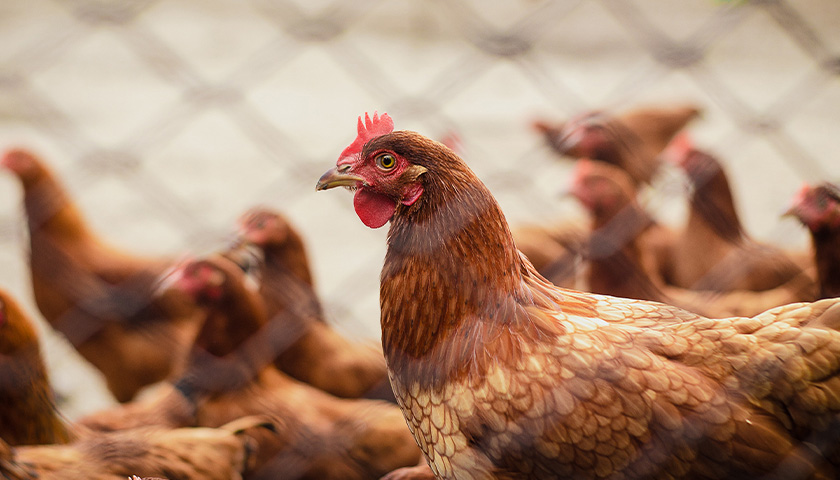The highly pathogenic avian influenza (HPAI) was recently detected in a commercial broiler chicken flock at a farm in Weakley County, the Tennessee State Veterinarian announced.
HPAI, also known as “bird flu” is a virus that affects bird populations. While the virus does not pose a food safety risk, no infected poultry is allowed to enter the food supply strictly out of an abundance of caution, according to the veterinarian’s office.
In response to the detection of the virus, authorities have set up a 10-kilometer (6.2 mile) control zone around the facility. Poultry within the zone will be tested and monitored for illness, and poultry movement will require a permit until the zone is released, the veterinarian’s office notes.
“Unfortunately, HPAI continues to spread to farms of all sizes,” Tennessee State Veterinarian Dr. Samantha Beaty said in a statement. “There have been four previous detections in Weakley County affecting backyard flocks. It’s apparent this disease remains a threat to the poultry industry. We want bird owners to know that their consistent practice of thorough biosecurity measures is the best way to protect the health of their flocks. Introduction of this disease can be from wild birds gathering on your property or you can carry it into your flock if you are not wearing clean shoes and clothing.”
HPAI is being detected in bird populations across the country, according to the U.S. Department of Agriculture. The detention of the virus was first reported in April of last year. The spread of the virus is one of the factors of rising egg prices, according to an analysis published by Texas A&M University. Other factors include inflation and increased demand.
There are more than 600 family farms in Tennessee that produce poultry for the commercial market.
– – –
Kaitlin Housler is a reporter at The Tennessee Star and The Star News Network.
Photo “Poultry Farm” by Italo Melo.





